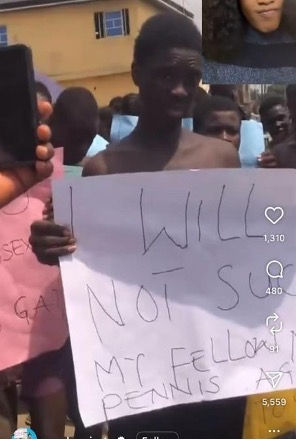NIGERIA: STATE OF EMERGENCY & LEGALITY OF GOVERNORS’ STAY IN OFFICE AND EFFECT ON CITIZENS’ RIGH
- May 16, 2013
- 4 min read
In this piece, Elvis Towolawi Esq, a Volunteer with Lawyers Alert urges that the recent proclamation of state of emergency in the North Eastern states of Nigeria is Constitutional alongside the Governors’ remaining in power and the abridgement of certain rights .
Nigeria has been in the throes of violence and gross abuse of human rights especially in the Northern States of Borno, Adamawa and Yobe in the last 3 years. Thousands of lives have been lost, properties worth millions destroyed, people rendered homeless, all owing to the activities of the dreaded terror group – Boko Haram.
The President declared a state of emergency in those states pursuant to section 305 (1) (2) (3) (4) (5) of the 1999 Constitution of the Federal Republic of Nigeria. Under subsection (3), the President is empowered to proclaim a state of emergency only when: (a) the Federation is at war; (b) the Federation is in imminent danger of invasion or involvement in a state of war; (c) there is actual break-down of public order and public safety in the Federation or any part to such extent as to require extraordinary measures to restore peace and security; (d) there is a clear and present danger of an actual breakdown of public order and public safety in the Federation or any part thereof requiring extraordinary measures to avert such danger; (e) there is any other public danger which clearly constitutes a threat to the existence of the Federation; (f) the President receives a request to do so in accordance with the provisions of subsection (4) of this section; and in extreme situation where the Governor fails to make the request (as provided for in subsection (5).)
Testing the President’s proclamation of the state of emergency in the water of facts as to whether it accords with the dictate of the Constitution validates the President position. There’s no cloud of equivocation that violent fanaticism is threatening to throw Nigeria over the edge and tear the Country into splinter units. Public peace is raped with impunity; human blood and rights, spilled and violated with puerile relish; and symbols of the Nigerian State are harassed and harried from all corners by some Islamic militant sects in the North, and by bands of criminals.
It’s an open secret that the Governors of these states have become effeminate and feeble to discharge their responsibility as Chief Security Officers.
In Borno State, Bako Haram sect now runs a quasi-sovereign state within, where they have conquered and established some authority.
The long of the story is that the North Eastern States as well as other Northern States are in a boiling cauldron of violence; and the short is that the dialogue and amnesty appears very short of progress. The President’s Declaration of the State of Emergency is therefore in line with the letters and spirit of the powers conferred on him by section 305 of the Constitution.
However, the thrust of this discourse is to examine the Declaration itself in the mirror of the Constitution, considering the probity and legality of the Governors’ position as chief executives of the affected states; and the consequences of the Declaration on the citizens’ enjoyment and enforcement of fundamental rights.
On the question of the probity of the affected States Governors’ continued functioning in office in the face of the Declaration, one would aver that there is no place in the Constitution that provides for the removal of a sitting Governor when a state of emergency is proclaimed in a State. Rather, the Constitution as amended, in Section 305 (4) even empowers the Governor to request the President to issue a proclamation of a state of emergency in his state when the situations stipulated under subsection 3(1), (d) and (e) occur. Would the Constitution attempt to give power that would abrogate an existing Constitutional power?
Social commentators referred to the then President Obasanjo act of removal of Governors in Ekiti and Plateau when State of Emergency was declared during his administration as a precedent. This it is argued was borne out of autocratic propensity as it is unconstitutional and inappropriate. President Obasanjo’s displayed the military part of him when he removed the Governors of Ekiti and Plateau States.
On the issue of citizens’ rights – Does the proclamation of an emergency rule flush away the foundations of the fundamental rights of citizens? In a state of emergency certain fundamental rights can be derogated and watered down for the purpose of attaining public safety and national security. Constitutionally, it is covered in section 45 (1) and (2) where core human rights can be restricted for public interest, safety, and defence.
It is important to note that citizens’ rights can only thrive, flourish, and be protected in a harmonious, peaceful and safe climate in a state; where a State is in the throes of violence and insecurity, such rights lose its colour.
Emergency powers are exercised to protect a state from the demons of insecurity and disaster making it is reasonable that certain rights should be curtailed for the aim of the rule to be achieved. The end of emergency rule is the restoration of a clement environment for the enjoyment of human rights.
In conclusion, the state of emergency power as exercised by the President is in line with the provisions of the Constitution; and the legality of the Governors’ functioning is firm; and the citizens’ rights can be abridged for the greater goal of keeping the sovereignty and strength of the state, for it is principally within the state that the rights are enjoyed and enforced. If the state crumbles, then the rights would become like soil, to be trampled upon with little regard.








Comments